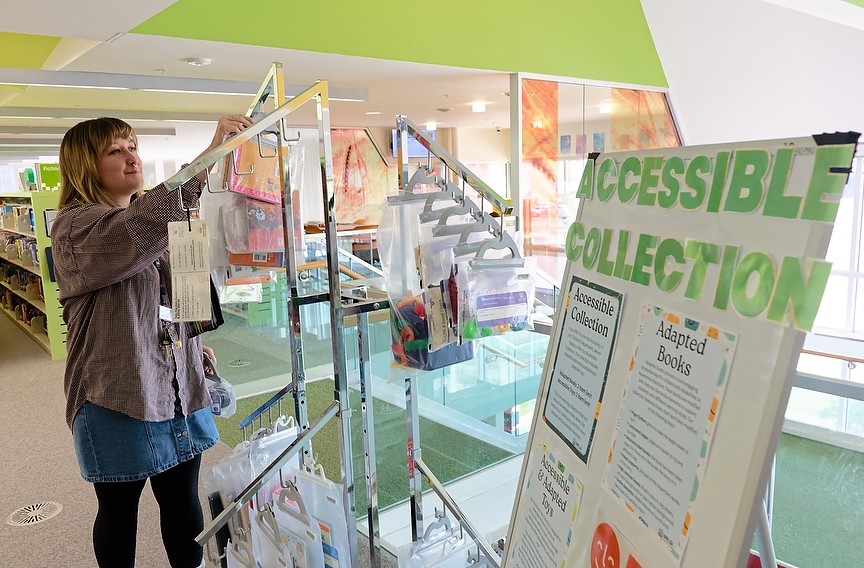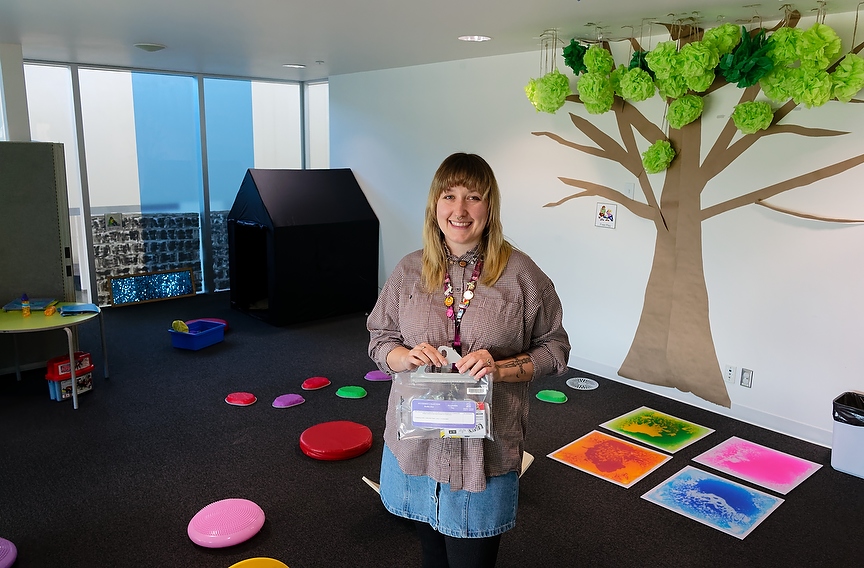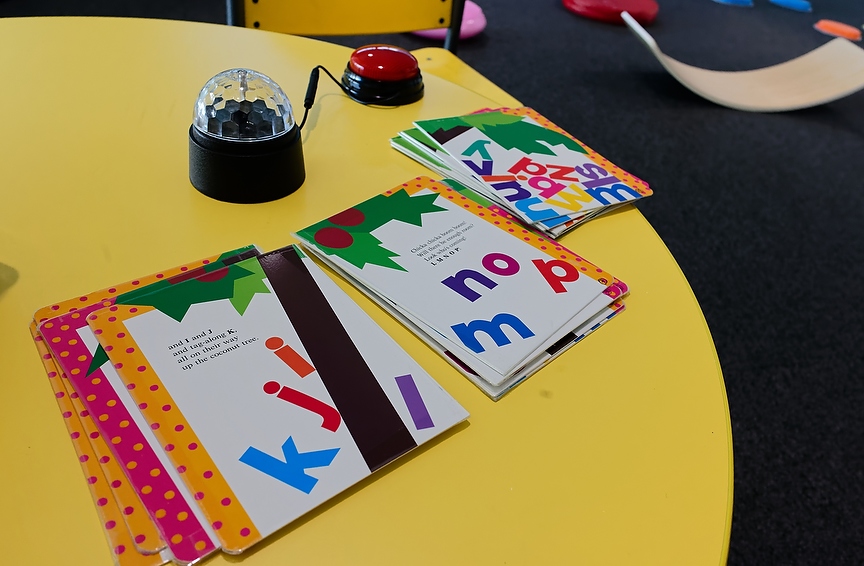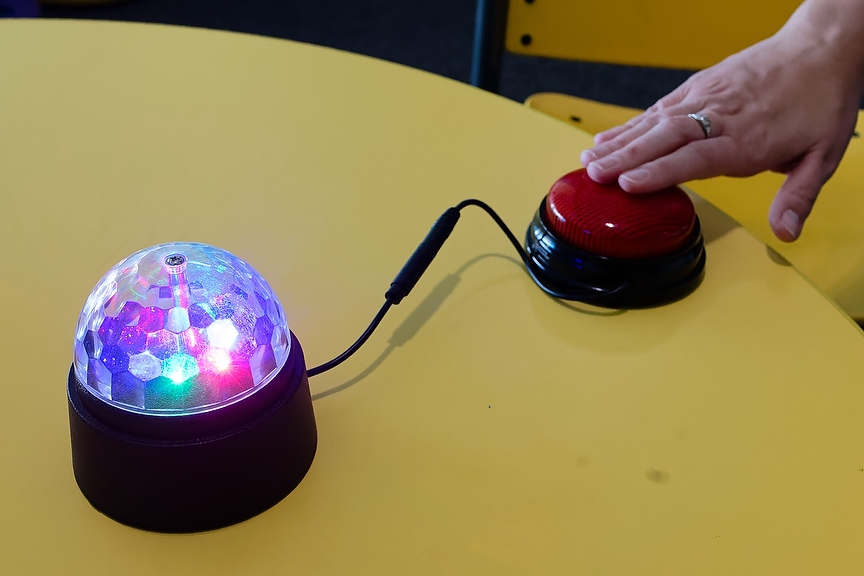
An assortment of modified books, toys and sensory materials is now available at the library to ensure children of all different abilities can use the resources.
The Grande Prairie Public Library (GPPL) launched its new Accessible Collection for Children last week.
“We're working on creating a more accessible children's department, and we're always trying to improve and make it better for the community,” said Emily Rempel, GPPL children’s programmer.

The collection currently holds about 30 items, but it is also a work in progress that is expected to grow, says Rempel.
“I'm always looking for more materials that would be helpful for kids with disabilities,” they said.
It currently includes items including Braille UNO cards, books that have been modified to be sturdier and more disability friendly and special toys.
One item is a book that Rempel cut the pages out so a child may rearrange pages as they wish or change them to an order they prefer.

“For other books, I've added something called page fluffers, so you can use a few different materials, but I use those little sticky gems, and I basically just put them in the corner of the pages, and it makes it easier to turn the pages,” they said.
“For paperback books, what we did was we cut those apart and laminated the pages to make them sturdier, and we put them on binder rings so that they're a lot more durable for kiddos who maybe can't use traditional paperback books.”
They said the library is also working on adding high-contrast books to the collection for children facing vision loss.
Another item in the collection is switch-adapted toys, toys that have been modified to be turned on by an accessible switch.

Rempel said that often toys can include a switch in the paw of a stuffed animal, which can be challenging to use for some children with motor skill difficulties or limb differences.
They said the library currently only has one switch, but is working on acquiring more from FairPlay, a non-profit which donated the item and is dedicated to accessible play for children with disabilities.
The library is also developing a sensory space after receiving a $4,300 grant from Weyerhaeuser.
Rempel says the space will be used as a quiet space for children with autism, sensory processing difficulties and other disabilities, where they can use sensory items such as bins that simulate being at a beach or in the forest and calming lights in the room.
After announcing the accessible collection on social media, a book was already being checked out on the first day.